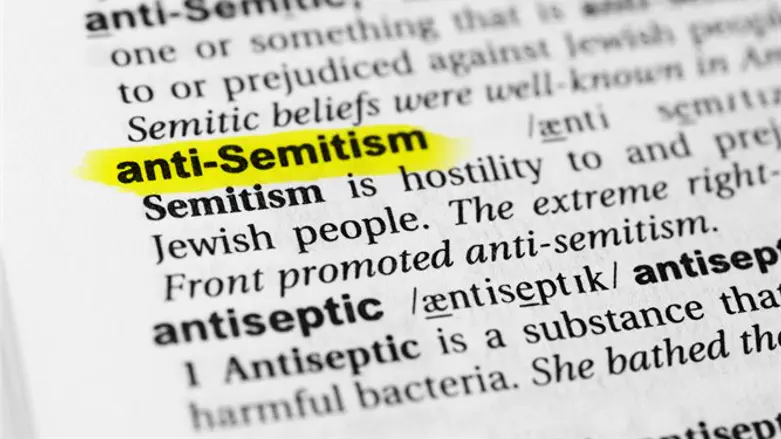
The significant rise in extremism and the widespread increase in antisemitic conspiracy over the last year could have profound effects on Jewish communities in a post-Pandemic world, Dr. Moshe Kantor, President of the European Jewish Congress, said at the release of the Annual Report on Antisemitism Worldwide 2020, by the Kantor Center at Tel Aviv University.
“2020 has been a year like no other in recent memory. Our worlds and daily lives were changed and altered, leading to a global social crisis in many countries and for many around the world,” Dr. Kantor said.
“As a result, there has been a deep global polarization, with the extremist margins increasing due to conspiracy theories and the search for answers in a challenging world. This led to a change in the type and distribution of antisemitism.”
Fewer physical attacks took place, because of lockdowns and severe restrictions. Far more hate against Jews was spread online where accusing Jews and Israel for the Coronavirus was easily spread, resulting in the expansion of extremist groups.
Dr. Kantor also expressed concern at the effect on people, in particular the younger generation, of the spread of online hate.
“We have yet to see the results of a younger generation forced indoors during a protracted period of their formative years, with the closure of educational institutions and employment and entertainment opportunities and exposed in some cases at the click of a switch or the touch of a screen to 24-7 anti-Jewish hate in online forums.,” Dr. Kantor said.
“We know that antisemitism spread online to young minds can and does lead to violent and racist attacks. We only have to look at some of the most pernicious hate crimes of recent years such as Breivik in Norway, Mohammed Merah at the Jewish school in Toulouse in France, the attack on a mosque in New Zealand and the attacks on synagogues in Pittsburgh and Poway to see how easy it is to transfer learned hatred into murderous violence.”
“Anti-Jewish hatred online never stays online. We have to be prepared that antisemitic conspiracy theories could lead to physical attacks on Jews when lockdowns end,” he added.
According to the report, in most countries a decrease was observed in violent incidents, attacks on both people and property, threats and arson, but the number of attacks against Jewish sites and communal property increased.
- The number of violent antisemitic incidents decreased by 19%, from 456 incidents in 2019 to 371 in 2020, due to lockdowns.
- In addition, the number of physical injuries decreased by 37%, from 170 in 2019 to 107 in 2020, and damage to private property was also reduced by 35%, from 130 to 84 incidents, simply because people mostly stayed at home.
- However, a rise of 25% was observed in desecrations of Jewish cemeteries and vandalizing of Holocaust memorials and other Jewish monuments – from 77 to 96 incidents in 2020, because these sites are open and unprotected.
- The number of vandalized synagogues also increased, by 19%., from 53 to 63 incidents in 2020. Most recently, the synagogue of Norrköping, Sweden, was desecrated by Neo-Nazis, on the first night of Passover.
A rise was registered in Ukraine, and a decline in Australia, the UK and especially in France and Canada.
Worrying trends continued in Germany and the USA. In Germany, a rise was recorded in the total number of incidents, with the opposition to vaccines generating comparisons to the Holocaust, and continued desecration of Jewish memorials and cemeteries.
In the US, antisemitic activities on the internet intensified, conspiracy theories have become more rampant and boosted the activities of white supremacists and QAnon.
The pandemic, and measures taken to stem its spread, live restrictions and the vaccines, have led to inappropriate comparisons with Jewish suffering during the Holocaust.
“The use of Holocaust imagery surrounding the Coronavirus has become rampant,” Dr. Kantor said. “Whether comparing the restrictions to ghettos or Nazi laws against Jews and the vaccine as akin to Mengele’s experiments, these terms have minimized the murder and suffering of the Six Million Jews.”
Dr Kantor also spoke about the greater attention online hate was receiving, including action taken by some of the social media companies and governments to stem the flow of hate.
“On the positive side, during 2020, thanks to greater oversight and action by the major social media companies and stronger national legislation against online hate, the number of antisemitic incidents on the main platforms has decreased,” Dr. Kantor said. “However, as the report shows, many of these perpetrators of hate have merely fled to the DarkNet and other platforms, so we need our leaders to find ways to prevent the dissemination there as well.”
The report also shows that in the US a gradual rise in violent incidents has been observed for several years, reaching 119 this year, and Germany also saw a significant escalation, of 24% in the total number of cases, reaching 2,275 compared to 1,839 in 2019 - the highest number recorded since 2001 - including 59 violent incidents. In both countries, vandalism accounted for most of the incidents.